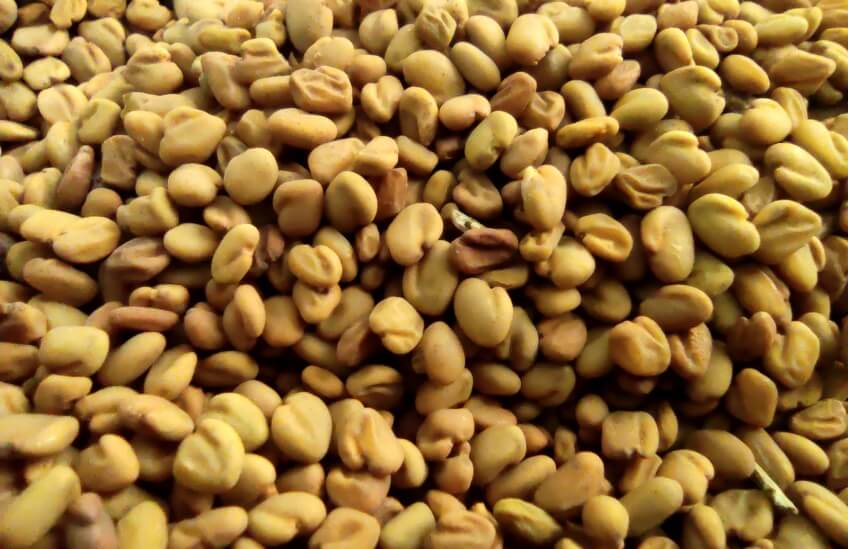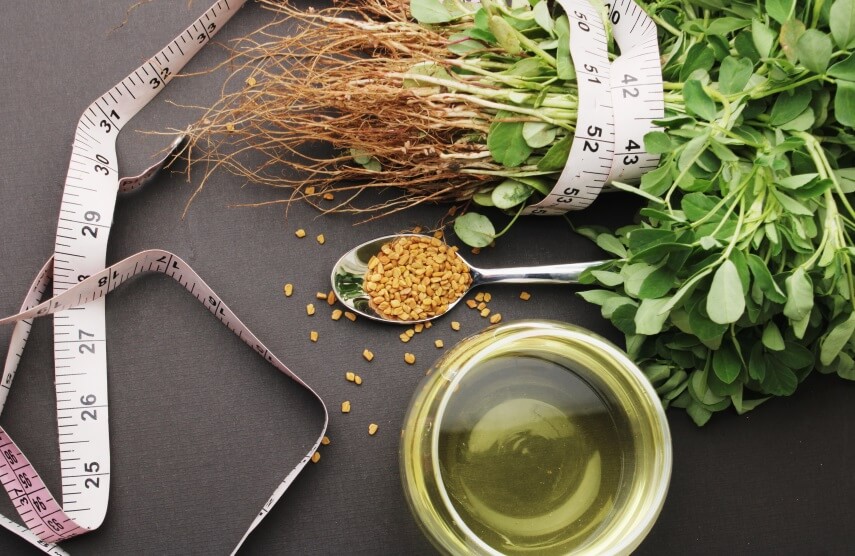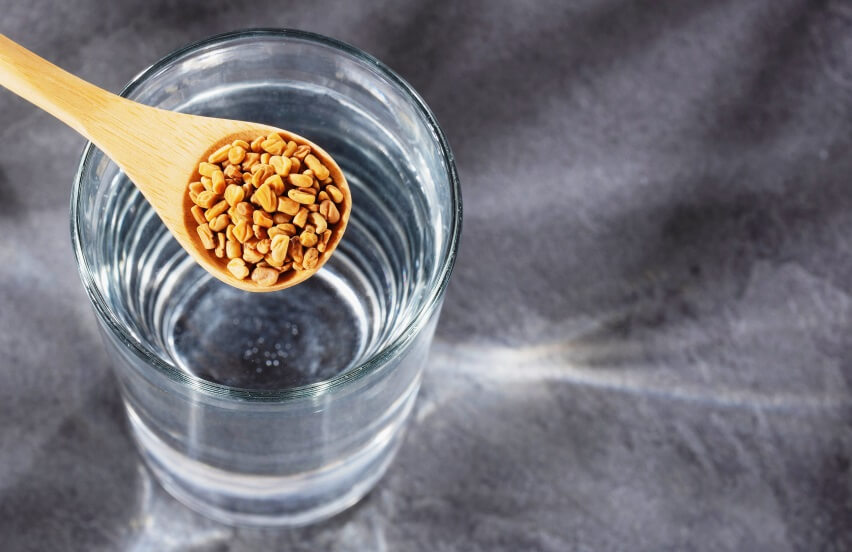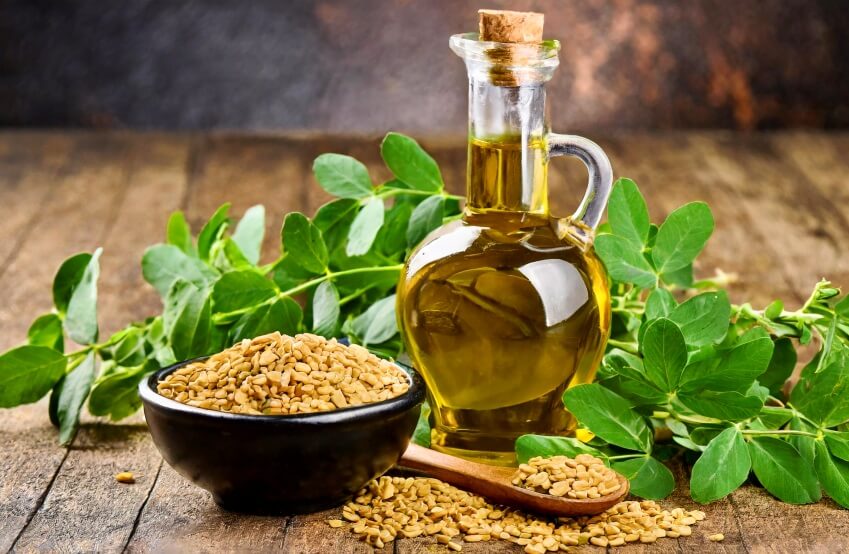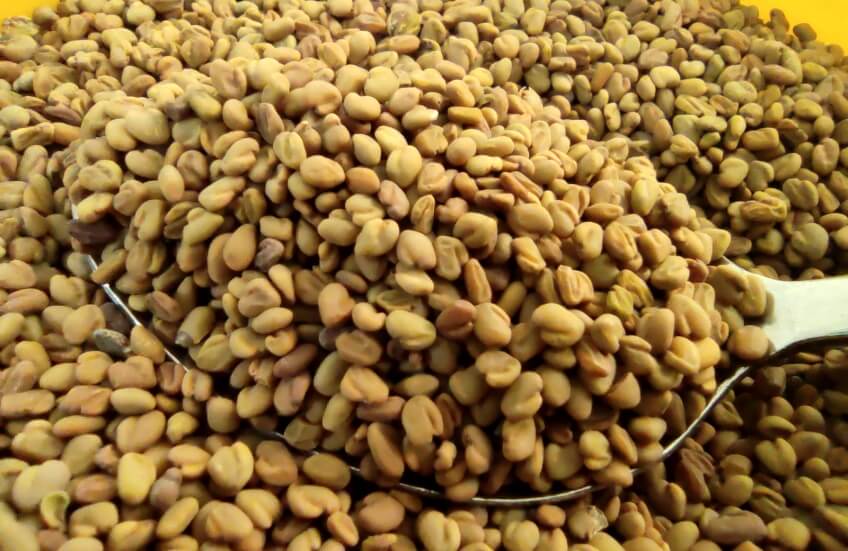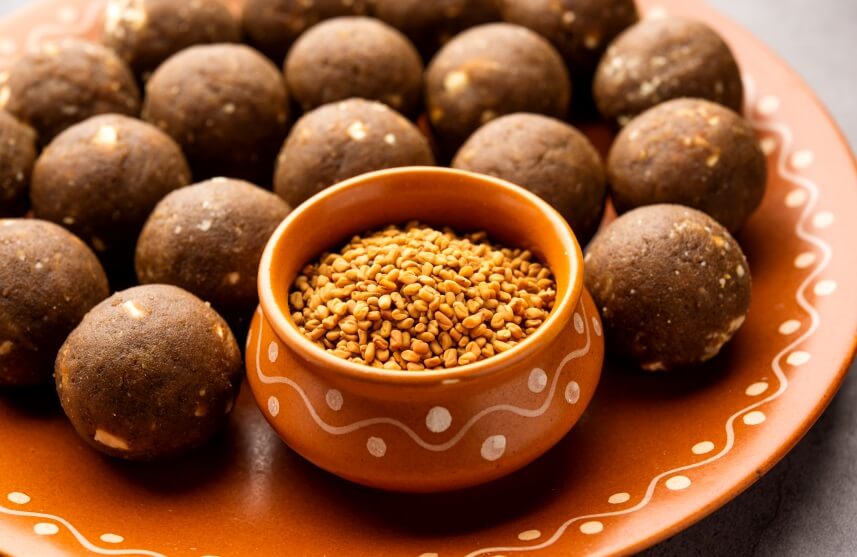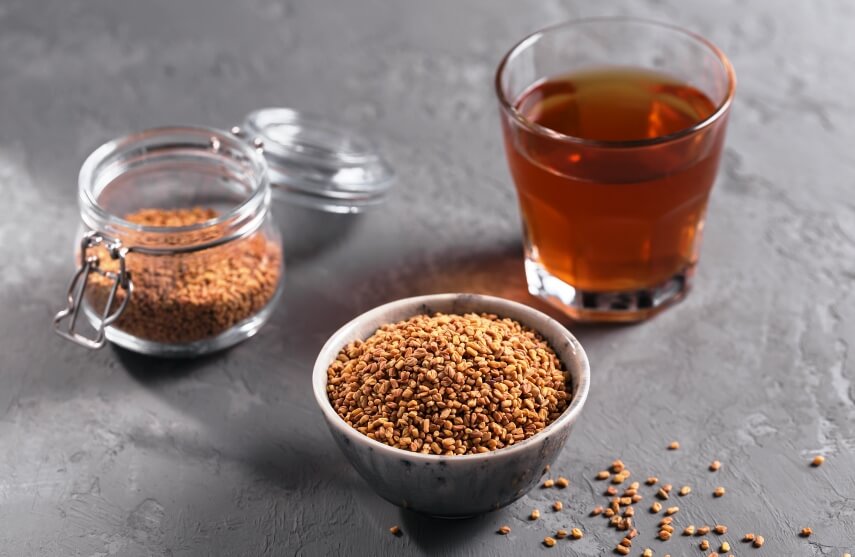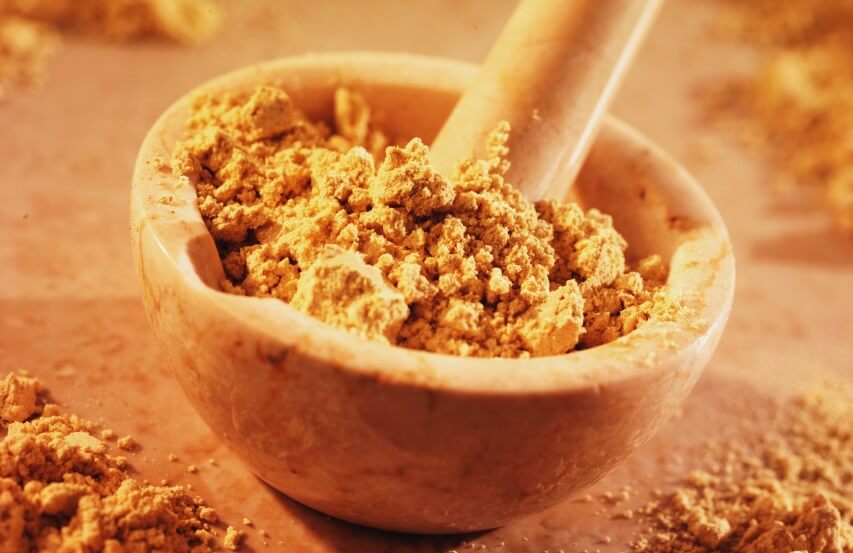Fenugreek, also known as Methi, is a plant native to the Mediterranean, Asia, and Africa. It has been used for centuries in traditional medicine systems such as Ayurveda, Traditional Chinese Medicine, and Unani medicine. The fenugreek plant seeds are particularly valued for their medicinal properties and culinary uses. In recent years, scientific research has provided insights into the potential health benefits of fenugreek seeds, leading to increased interest in their therapeutic applications.
If you are interested in this topic, you can also read
<<Cistanche Plant Benefits>> and <<Beetroot Leaf Benefits>> articles.
Nutritional Composition
Fenugreek seeds are rich in nutrients, including proteins, carbohydrates, dietary fiber, vitamins, and minerals. They contain high protein levels, making them a valuable source of plant-based protein for vegetarians and vegans. Additionally, fenugreek seeds are a good source of vitamins A, C, and B-complex, as well as minerals such as iron, calcium, magnesium, and potassium. The nutritional composition of fenugreek seeds contributes to their health-promoting properties.
Pharmacological Properties
Fenugreek seeds exhibit various pharmacological properties attributed to their bioactive constituents, including alkaloids, flavonoids, saponins, and steroidal sapogenins. Some of the notable pharmacological properties of fenugreek seeds are as below [4, 5, 6]:
Anti-inflammatory
Fenugreek seeds contain compounds with anti-inflammatory properties, which may help reduce inflammation and alleviate symptoms of conditions such as arthritis and inflammatory bowel disease.
Antioxidant
The antioxidant compounds in fenugreek seeds help neutralize harmful free radicals in the body, thereby protecting cells from oxidative damage and reducing the risk of chronic diseases such as cancer and cardiovascular disease.
Regulating Blood Sugar
Fenugreek seeds have been shown to improve insulin sensitivity and regulate blood sugar levels, making them beneficial for individuals with diabetes or insulin resistance.
Digestive Aid
Fenugreek seeds contain soluble fiber, which helps regulate digestion, prevent constipation, and promote gastrointestinal health.
Hormonal Balance
Fenugreek seeds contain phytoestrogens, which may help regulate hormonal balance and alleviate symptoms of menopause and PMS (premenstrual syndrome) [7].
Skin And Hair Health
Fenugreek seeds contain nutrients and compounds that may promote healthy skin and hair. Fenugreek seed paste or oil can be applied topically to the skin and scalp to moisturize, soothe irritation, and promote hair growth [8].
Fenugreek Seeds Benefits For Male
Fenugreek seeds offer several potential benefits for men’s health, including:
Testosterone Levels
Fenugreek seeds contain compounds like saponins and diosgenin, which may help boost testosterone levels. Higher testosterone levels can improve men’s libido, muscle strength, and overall vitality [9, 10, 11].
Sexual Health
Some studies suggest that fenugreek may enhance sexual function and libido in men. It may help improve erectile function and increase sexual arousal, leading to better sexual performance [12].
Fenugreek Seeds Benefits For Female
Fenugreek seeds offer several potential benefits for women’s health, including:
Menstrual Health
Fenugreek seeds may help regulate menstrual cycles and alleviate symptoms associated with menstruation, such as cramps, bloating, and mood swings. The compounds in fenugreek seeds may have mild estrogenic effects, which can help balance hormone levels and promote regular menstruation [13, 14].
Breastfeeding Support
Fenugreek seeds are commonly used to increase milk production in breastfeeding women. They contain phytoestrogens, which are plant compounds that mimic the effects of estrogen in the body. Fenugreek supplementation may help stimulate milk production and improve lactation in nursing mothers [15].
Fenugreek Seeds Benefits For Hair
Fenugreek seeds offer numerous potential benefits for hair health, making them a popular ingredient in various hair care products and home remedies. Here are some of the benefits of fenugreek seeds for hair [16, 17]:
Promotes Hair Growth
Fenugreek seeds contain compounds that may stimulate hair follicles and promote hair growth. These seeds are rich in proteins and nicotinic acid, which are known to strengthen hair roots and prevent hair loss. Regular use of fenugreek seed-infused hair treatments or oils may encourage thicker, healthier hair growth.
Prevents Hair Loss
Fenugreek seeds are believed to help prevent hair loss and reduce baldness by strengthening hair follicles and promoting overall scalp health. Fenugreek seeds’ proteins and amino acids nourish the hair follicles, making them less prone to breakage and shedding.
Conditions and Moisturizes
Fenugreek seeds are naturally high in mucilage, a gel-like substance that helps condition and moisturize the hair. Applying fenugreek seed paste or oil to the scalp and hair can help hydrate dry, brittle hair, leaving it soft, smooth, and more manageable. Regularly using fenugreek seed-based hair treatments can help restore shine and vitality to dull, lackluster hair.
Reduces Dandruff
Fenugreek seeds’ antifungal and antibacterial properties make them effective in treating dandruff and other scalp infections. Fenugreek seeds have cooling and soothing properties that can help calm irritated or inflamed scalp conditions such as scalp psoriasis or eczema. Fenugreek seed paste or oil can help soothe and cleanse the scalp, reducing itchiness, flakiness, and inflammation associated with dandruff [18].
Note: To reap the benefits of fenugreek seeds for hair, you can create homemade hair masks, pastes, or oils using fenugreek seeds and other natural ingredients. Additionally, fenugreek seed supplements or hair care products containing fenugreek extract are available for those looking for convenient alternatives. As with any new hair care regimen, it is essential to perform a patch test and consult with a dermatologist or trichologist if you have any concerns or underlying scalp conditions.
Fenugreek Seeds Benefits For Skin
Fenugreek seeds offer several potential benefits for skin health due to their rich nutrient content and various bioactive compounds. Here are some of the benefits of fenugreek seeds for the skin [19, 20]:
Moisturizes The Skin
Fenugreek seed mucilage helps to hydrate and moisturize the skin. When applied topically or used in skincare products, fenugreek seed extracts can help to lock in moisture, keeping the skin soft, supple, and well-hydrated.
Reduces Inflammation
Fenugreek seeds have anti-inflammatory properties, which can help to soothe and calm irritated or inflamed skin. They contain compounds like diosgenin and saponins, which have been shown to reduce redness, swelling, and discomfort associated with various skin conditions such as acne, eczema, and dermatitis [21].
Treats Acne
Fenugreek seeds possess antibacterial and antifungal properties that effectively treat acne and prevent breakouts. They help to cleanse the pores, reduce excess oil production, and inhibit the growth of acne-causing bacteria on the skin. Fenugreek seed paste or oil can be applied topically to acne-prone areas to help clear up blemishes and promote clearer, healthier skin [22].
Tightens And Firms The Skin
Fenugreek seeds have astringent properties that help to tighten and firm the skin, reducing the appearance of fine lines, wrinkles, and sagging skin. They contain compounds that stimulate collagen production, which helps to improve skin elasticity and firmness over time.
Note: To incorporate fenugreek seeds into your skincare routine, you can make homemade face masks, scrubs, or creams using fenugreek seed powder or extracts. Alternatively, look for skincare products that contain fenugreek seed extract as an active ingredient. As with any new skincare product or ingredient, it’s essential to perform a patch test to check for any allergic reactions or sensitivity before using it extensively on the skin. If you have any underlying skin conditions or concerns, consult a dermatologist before using fenugreek seeds or products containing fenugreek extract.
Fenugreek Seeds Benefits For Weight Loss
Fenugreek seeds offer several potential benefits for weight loss due to their unique nutritional profile and various bioactive compounds. Here are some of the ways fenugreek seeds can support weight loss [23, 24, 25]:
Appetite Suppressant
Fenugreek seeds contain soluble fiber, which swells and expands in the stomach, creating a feeling of fullness and satiety. This can help reduce appetite and food intake, leading to fewer calories consumed throughout the day.
Regulates Blood Sugar Levels
Fenugreek seeds have been shown to help regulate blood sugar levels by slowing down the absorption of carbohydrates and sugars in the digestive tract. By stabilizing blood sugar levels, fenugreek seeds can help to prevent spikes and crashes in energy levels, reducing cravings for sugary and high-calorie foods.
Boosts Metabolism
Fenugreek seeds contain compounds like galactomannan, which have been shown to increase metabolic rate and improve fat metabolism. By boosting metabolism, fenugreek seeds can help the body burn calories more efficiently, leading to more significant calorie expenditure and weight loss.
Reduces Fat Absorption
Fenugreek seeds contain saponins, compounds that help to inhibit the absorption of fats and cholesterol in the intestines. By reducing fat absorption, fenugreek seeds can help to lower overall calorie intake and promote weight loss.
Reduces Water Retention
Fenugreek seeds have diuretic properties, which can help to reduce water retention and bloating. This can lead to temporary weight loss by eliminating excess water weight from the body.
Note: It is essential to remember that while fenugreek seeds can support weight loss when combined with a healthy diet and lifestyle, they are not a magic solution on their own. For optimal results, you must maintain a balanced diet, engage in regular physical activity, stay hydrated, and get enough sleep. Also, consult a healthcare professional before adding fenugreek seeds to your weight loss regimen if you have any underlying health conditions or concerns.
Fenugreek Seeds Side Effects
While fenugreek seeds offer various health benefits, they may also cause side effects in some individuals, especially when consumed in large amounts or for an extended period. Here are some potential side effects of fenugreek seeds [26]:
Allergic Reactions
Some people may be allergic to fenugreek seeds and experience symptoms such as skin rashes, itching, swelling, and difficulty breathing. If you have a known allergy to legumes or chickpeas, you may also be allergic to fenugreek seeds.
Hypoglycemia
Fenugreek seeds have been shown to lower blood sugar levels, which can benefit individuals with diabetes. However, in some cases, fenugreek seeds may cause blood sugar levels to drop too low, leading to hypoglycemia. This is more likely to occur in people taking medications for diabetes or those with hypoglycemia.
Uterine Contractions
Pregnant women should avoid consuming fenugreek seeds in large amounts, as they may stimulate uterine contractions and potentially lead to preterm labor or miscarriage. Nursing mothers should also be cautious, as fenugreek seeds may reduce milk production in some women [27].
Interference with Medications
Fenugreek seeds may interact with certain medications, including blood thinners, diabetes medications, and hormone therapy drugs. If you take any medications, consult your healthcare provider before adding fenugreek seeds to your diet [28].
Skin Irritation
Applying fenugreek seed paste or oil topically may cause skin irritation or allergic reactions in some individuals, especially those with sensitive skin. It’s essential to perform a patch test before using fenugreek seed products on large areas of the skin [29].
Overall, while fenugreek seeds are generally safe for most people when consumed in moderate amounts as part of a balanced diet, it is essential to be aware of potential side effects and consult with a healthcare professional if you have any concerns or underlying health conditions.
How To Eat Fenugreek Seeds?
Fenugreek seeds can be incorporated into your diet in various ways. Here are some common methods for consuming fenugreek seeds [30, 31, 32]:
Soaked Fenugreek Seeds
Soaking fenugreek seeds overnight in water softens them and makes them easier to digest. You can consume soaked fenugreek seeds on an empty stomach in the morning or add them to smoothies, yogurt, salads, or soups.
Fenugreek Tea
Fenugreek tea is a popular way to enjoy the benefits of fenugreek seeds. To make fenugreek tea, simply boil fenugreek seeds in water for a few minutes, strain the seeds, and drink the infused water. You can add honey or lemon for flavor if desired.
Fenugreek Sprouts
Fenugreek seeds can be sprouted and eaten raw or added to salads, sandwiches, or wraps. To sprout fenugreek seeds, rinse them thoroughly and soak them in water overnight. Drain the water and place the seeds in a sprouting jar or tray. Rinse and drain the seeds twice daily until they sprout, usually within 2-3 days.
Ground Fenugreek Powder
Fenugreek seeds can be ground into a fine powder using a spice grinder, mortar, or pestle. Fenugreek powder can be added to curries, stews, and sauces or used as a seasoning for vegetables, meats, or rice dishes.
Fenugreek Seed Extract
Fenugreek seed extract is available in the form of capsules, tablets, or liquid extracts. Follow the dosage instructions on the product label or consult a healthcare professional for guidance on the appropriate dosage.
Fenugreek Seed Oil
Fenugreek seed oil can be used for cooking or as a topical treatment for skin and hair. You can add a few drops of fenugreek seed oil to your cooking or massage it into your scalp and hair to promote hair growth and scalp health.
Note: Regardless of how you consume fenugreek seeds, starting with small amounts and gradually increasing your intake is essential to prevent digestive discomfort. Additionally, if you have any underlying health conditions or are pregnant or breastfeeding, consult with a healthcare professional before adding fenugreek seeds to your diet.


